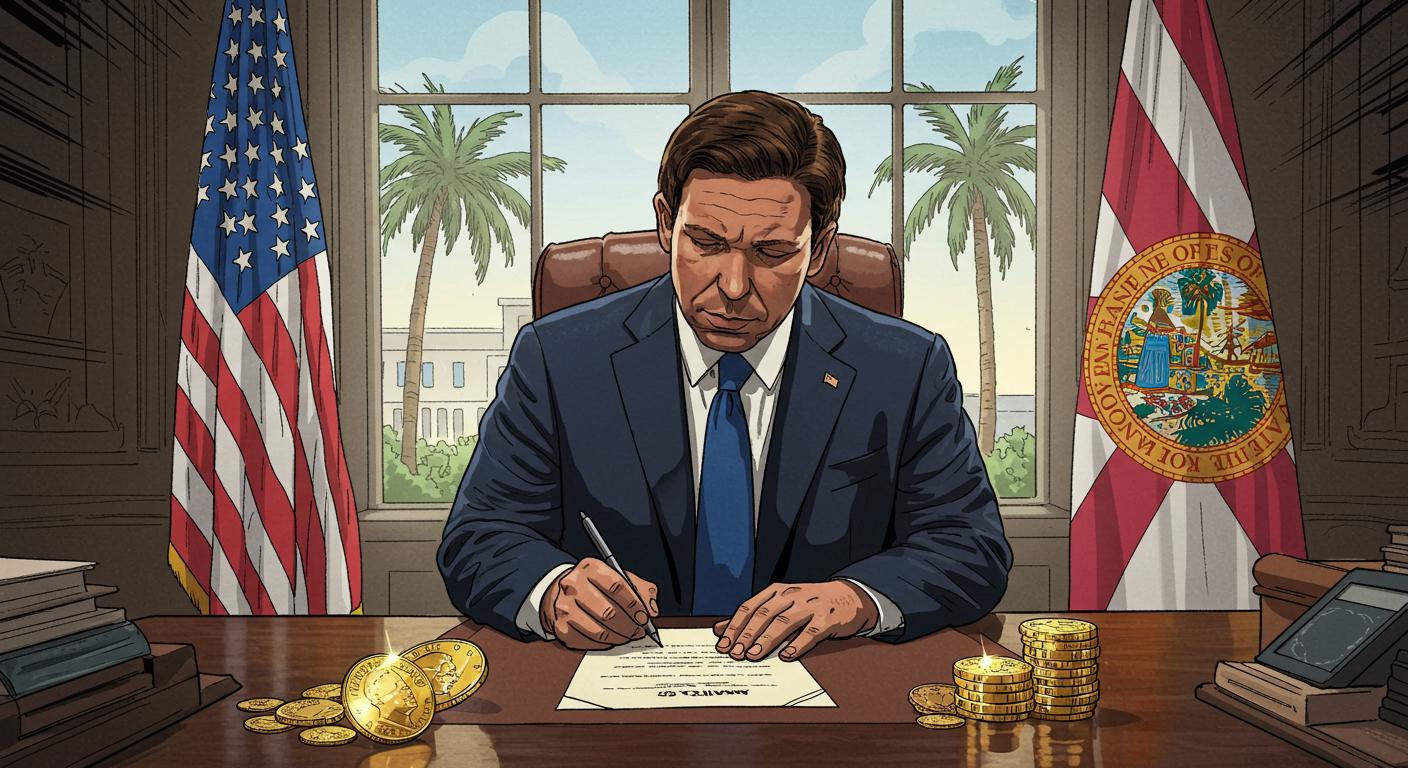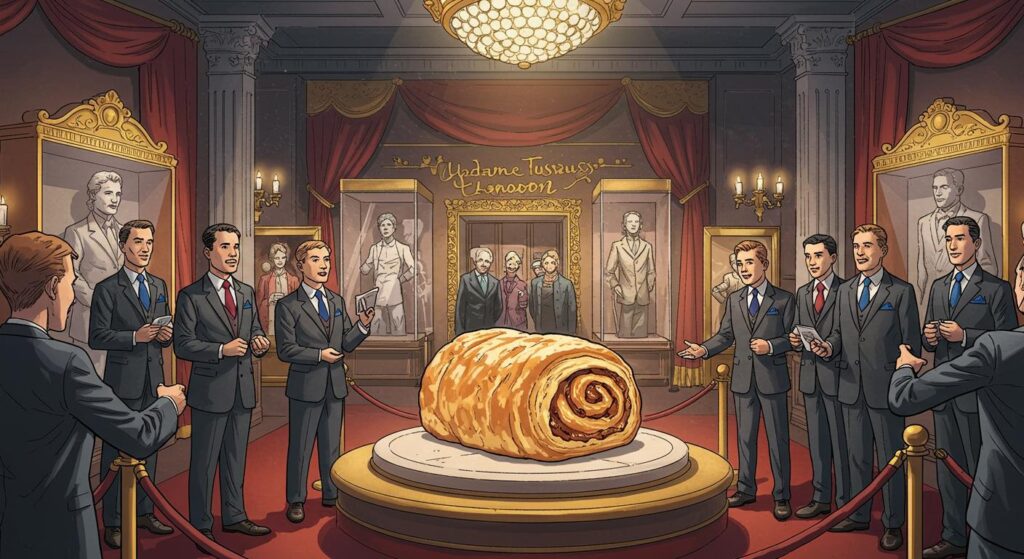From the land of pastel flamingos and sinkholes comes a distinctly retroeconomic twist: gold and silver coins will soon be recognized as legal currency in Florida. In a move that sounds tailor-made for pirates or dedicated coin collectors, Governor Ron DeSantis has signed House Bill 999 into law. But before anyone starts filling their wallets with bullion and picturing a return to powdered wigs, the real-world impact looks a bit less swashbuckling.
The Nuts and Bolts: What Florida’s Actually Doing
As detailed by ABC Action News, DeSantis’s signature on HB 999 means that, starting July 1, 2026, Floridians can (in theory) use gold or silver coins as payment if they encounter a business willing to accept them. This isn’t an enforced mandate—retailers have complete discretion over whether to accept bullion at the register. Anyone imagining a spontaneous gold rush at their local coffee shop might want to keep their card handy.
Key requirements described in both ABC Action News and FOX35 Orlando include that qualifying coins must be clearly stamped or minted to showcase their purity, weight, and origin. For those eyeing a sales tax workaround, the person making the purchase has the burden of proving their coins meet the legal standards for a tax exemption. Sales of gold and silver coins—so long as they comply—are exempt from state sales taxes as well, according to ABC Action News.
Legal Tender, Emphasis on the “Tender”
Governor DeSantis and legislative supporters have been vocal about the state’s supposed pioneering on this issue. As highlighted in reporting by WESH, DeSantis described Florida as “the first large state to step up and to get this done.” The new law also authorizes financial service providers—like check cashers and digital processors such as PayPal—to transmit and accept payments in gold and silver, according to explanations given at the bill signing. State Rep. Bill Bankson, who sponsored HB 999, emphasized to gathered attendees that the goal is to “eliminate the tax burden and make it a functional means of transaction between willing parties.” In a detail covered by WESH, Bankson also referenced the argument that the value of the U.S. dollar has fallen since the country left the gold standard in 1971, further framing the law as a nod to both opportunity and economic stability.
Still, in practice, use of these coins is strictly voluntary and transactional; it’s up to both buyer and seller (or service provider, or barista with a high tolerance for novelty) to agree. Fox35 Orlando specifies that “the use or acceptance of these metals as currency will be entirely optional,” laying to rest any fear that Floridians might soon be weighed down by sacks of bullion for everyday errands.
High Hopes and Historical Echoes
Supporters haven’t shied from invoking the U.S. Constitution, with DeSantis and Bankson suggesting the measure draws directly from Article I, Section 10, which restricts states to “making nothing but gold and silver coin a tender in payment of debts.” Whether this legal callback brings day-to-day fiscal stability or simply a dose of old-timey nostalgia is, of course, open to interpretation.
Bankson’s campaign-style rhetoric painted the bill as “opportunity without obligation, fiscal stability and security relief to the taxpayer,” according to comments noted by WESH. The underlying hope, according to supporters cited throughout the coverage, is to offer Floridians options in a world of shifting economic values—though what “security relief” looks like when it comes in the form of pocket change is perhaps best left to the imagination.
On the Ground: Bullion’s Place in the Sunshine State
Here’s where the practical side of archival research and a dash of common sense come into play. As Fox35 Orlando also documents, the law’s voluntary nature and the requirement for each coin’s origin and purity to be validated make widespread bullion-based commerce seem unlikely in the near future. Unless, that is, you happen to run with a crowd of precious metals enthusiasts or you really like making waits at the checkout interesting.
So, who exactly stands to benefit? Based on reporting from ABC Action News and the scenarios described by WESH, the most enthusiastic adopters are likely to be coin collectors, hobbyists, or businesses already set up to handle precious metal transactions. For everyone else, traditional dollars, digital wallets, and plastic cards will probably continue to reign supreme—no need for cashiers to break out the jewelers’ scales just yet.
The Bigger Picture: Policy, Performance, and a Pinch of Pageantry
In the grand scheme, HB 999 appears to serve as a mix of symbolic declaration and highly conditional legal change. The law lets Floridians, should they both desire and find willing business partners, conduct transactions in minted precious metals—free from state sales tax, provided they carry proof of legitimacy. Yet as recognized in coverage by Fox35 Orlando and ABC Action News, nobody is required to accept gold or silver, so “legal tender” here feels more like “legal possibility.”
Is this Floridian flair for bullion a sign of impending change or simply a new footnote in the state’s long tradition of novel legal gestures? The evidence so far suggests it’s a bit of both. It’ll be interesting to see whether this prompts any actual shift in payment habits—or just a few great stories. After all, how often do you get a chance to pay for oranges with a precisely weighed, certified, and government-approved silver coin? In Florida, starting July 2026, at least the option will exist—if you can find someone ready to make change.







